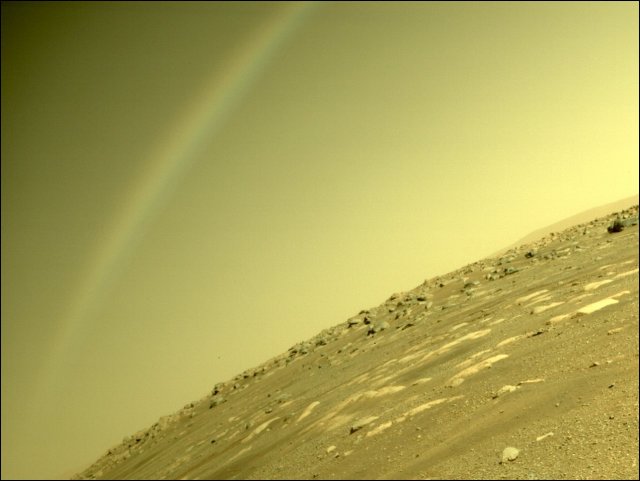According to the space agency, the method may later allow "obtaining and storing oxygen on Mars"
NEW YORK, April 22. /TASS/. Specialists of the US National Aeronautics and Space Administration (NASA) for the first time received oxygen from the atmosphere of Mars using a device installed on board the Perseverance planetary rover ("Perseverance"). This is stated in a statement published on Wednesday on the website of the US Space Agency.
As follows from the document, on April 20, with the help of the MOXIE pilot plant, oxygen was obtained from the Martian atmosphere, the main component of which is carbon dioxide. NASA representatives noted that " the demonstration of this technology is just beginning." As they stressed, this method can later allow "obtaining and storing oxygen on Mars", which will be useful for manned flights to this planet. According to NASA, this may mean that " science fiction will become a reality."
"Such devices may one day provide astronauts with breathable air," the space agency said. It clarified that with the help of MOXIE, they have so far received "about 5 grams" of oxygen, which would be enough for one astronaut to breathe for about 10 minutes. It is assumed that with the help of MOXIE, you can get "up to 10 grams of oxygen per hour," NASA said.
"This is a vital first step in the conversion of carbon dioxide into oxygen on Mars," said Jim Reiter, Deputy Director of NASA's Science Directorate. " MOXIE still has a lot of work to do, but the results obtained in demonstrating this technology are very promising in light of the fact that we are approaching our goal: one day to see people on Mars. Oxygen is not just what we breathe. Oxygen is important from the point of view of obtaining rocket fuel, in the future, researchers will need to get fuel on Mars to return home."
The Perseverance rover landed on Mars near the Jezero crater on February 18. Now all its systems and equipment are being checked. NASA experts expect to use Perseverance to detect traces of the existence of life on Mars in the distant past.

